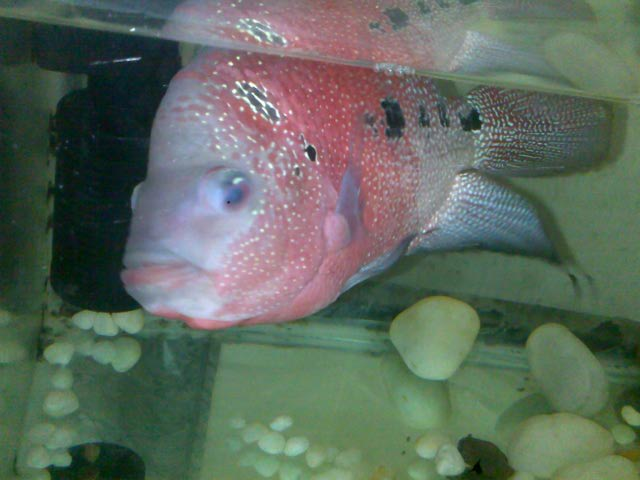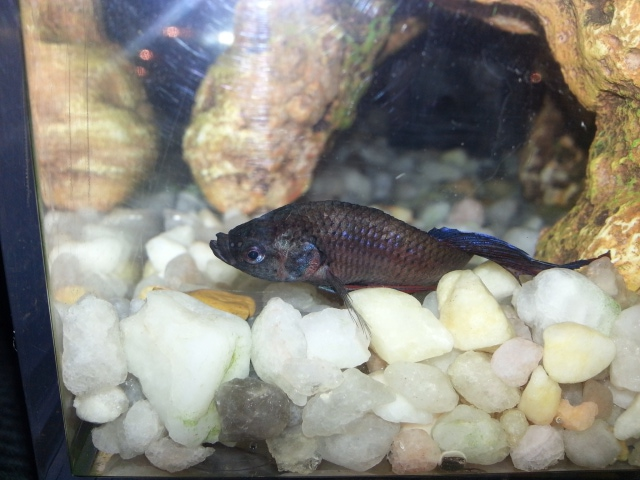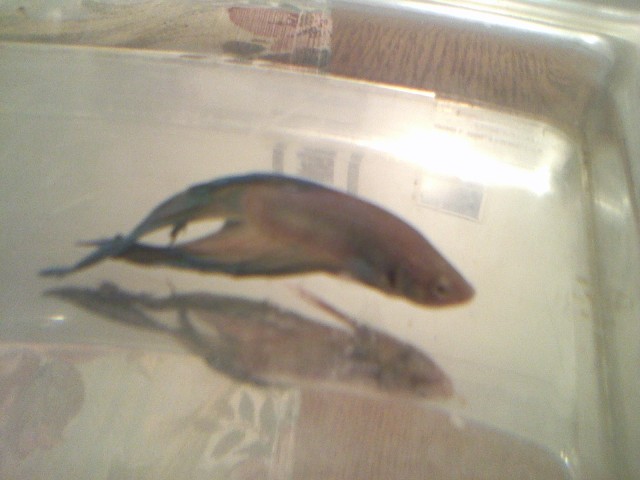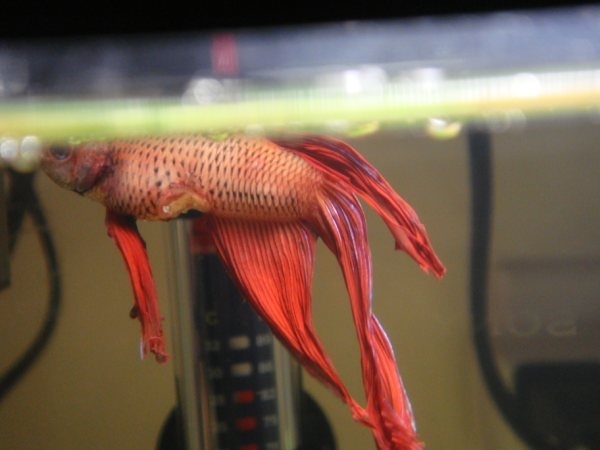QuestionQUESTION: I would like to know how long fish are pregnant for, What are the symptoms of pregnant fish and What should I do If My Fish Is Pregnant?
ANSWER: Hi Molly,
I think I just answered this in your last message.
-- Ron
rcoleman@cichlidresearch.com
Cichlid Research Home Page <http://cichlidresearch.com>
---------- FOLLOW-UP ----------
QUESTION: How long is a fish pregnant, for u did not answer this. But thank you
ANSWER: Hi Molly,
Very few kinds of fish get pregnant. In order for a fish to get pregnant there has to be internal fertilization by the male and the babies have to be born live. This happens in a few very diverse groups of fishes. For example, in guppies and their relatives, it takes a few weeks. In rockfishes it takes a few months. In surfperches it takes a few months.
-- Ron
rcoleman@cichlidresearch.com
Cichlid Research Home Page <http://cichlidresearch.com>
---------- FOLLOW-UP ----------
QUESTION: It lives in my pond, it is black with all different colours like reds and oranges, wat type is it.
ANSWER: Hi Molly,
There are over 25,000 different species of fishes so it is really hard for me to say. My guess would be that it is a koi, which is a relative of goldfish.
-- Ron
rcoleman@cichlidresearch.com
Cichlid Research Home Page <http://cichlidresearch.com>
---------- FOLLOW-UP ----------
QUESTION: Oh, so could it be pregnant if theres boys in the pond with her, i noticed about 5 days ago that she was getting big
AnswerHi Molly,
Sorry but no. She will not get pregnant. She cannot get pregnant. That kind of fish doesn't get pregnant. They
lay eggs. For a fish to get pregnant, it has to carry the live babies inside of it. Those fish do not ever do that. They are not capable of that. They lay eggs which the male fertilizes outside of her body. The fact that she is getting larger COULD mean that she is developing some eggs that she will lay. BUT, a male will have to fertilize them after she lays them.
-- Ron
rcoleman@cichlidresearch.com
Cichlid Research Home Page <http://cichlidresearch.com>

 My tank water is green - help!
QuestionMy Tank
QUESTION: Hi,
I have a 46 gallon
My tank water is green - help!
QuestionMy Tank
QUESTION: Hi,
I have a 46 gallon
 Flowerhorn Fish
Question
Last flowerhorn Fish Present Aquarium &n
Flowerhorn Fish
Question
Last flowerhorn Fish Present Aquarium &n
 Sick Betta
Question
Image 1 Image 2
My Betta has been
Sick Betta
Question
Image 1 Image 2
My Betta has been
 Transparent Betta
Question
Betta
Recently, my Betta fish has been
Transparent Betta
Question
Betta
Recently, my Betta fish has been
 Betta with open wound
Question
Betta wound
Ive had my red betta (Ronin) for t
Betta with open wound
Question
Betta wound
Ive had my red betta (Ronin) for t